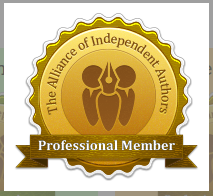How do you define a happy ending?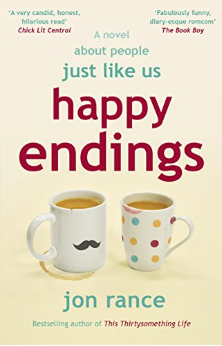 ''I won't read a book with an unhappy ending,' a friend once told me. 'So how do you define a happy ending?' I asked. 'Well,' she replied, 'I guess it's a broader issue than everyone living happily ever after, like in a romance novel. For me, in order to have a happy ending, good has to triumph over evil.' This got me thinking. Is it really necessary for every novel to serve up a morally nutritious dessert at the end of the fictional feast? Must good always emerge the victor? Real life, as we're all painfully aware, isn't like that. So why should we expect fiction to paint an unrealistic picture of the world we live in? A place for unhappy endings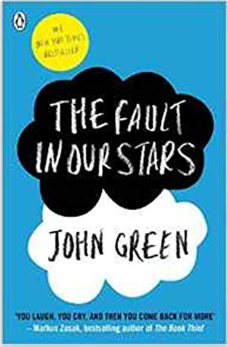 Genre is important here, of course. I'd bet that most romance readers prefer happy endings for their novels. After all, isn't that the point? Character A meets Character B, they're attracted, but obstacles abound along the path of true love. Eventually A and B conquer their issues, declare their love and live happily ever after. Death, unpleasant divorce statistics and marital disharmony would be unwelcome guests in the soft-edged and fluffy world of romantic fiction. 'I remember reading a romance book back when I was a teenager and it had the heroine dying at the end in childbirth and the hero being sad and never finding someone again. What the hell kinda ending is that!?' A comment made in response to me posing the question about happy endings in a Goodreads group. Hard not to see her point, really! In the same group, someone mentioned a romance in which the hero gets shot two chapters from the end, totally ruining the reading experience. For romance novels, a stereotypical 'happy ever after' ending is almost implicit. Not always, of course. Shakespeare's 'Romeo and Juliet' is the obvious example of a doomed romance, but there are plenty more. Take 'The Fault in Our Stars', a novel by John Green. No happy endings here, not given the death of Augustus Waters from cancer. But then, with this novel, the reader is primed from the start to wonder whether a feel-good conclusion is in the stars. After all, the protagonists meet at a support group for cancer patients. And let's not forget many readers enjoy a good weepie. There's definitely a place for unhappy endings, even within the romance genre, provided they're done sensitively and don't come as a shock to the reader. A world without hope, an unthinkable future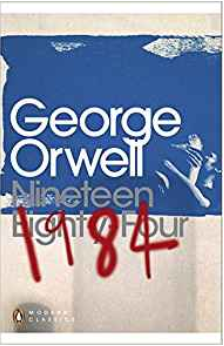 Let's stick with the issue of genre. If happy endings are the norm for romance novels. the opposite is often true for dystopian ones. Dystopian novels are, by their definition, about unhappiness, with the protagonist primed to fail in a world without hope. The point of such a novel is to portray a an unthinkable future, one that can serve as a warning. In his dystopian epic 'Nineteen Eighty-Four', George Orwell allows us to glimpse the horrors of a totalitarian world. I've written in a previous blog post about how affected I was by reading the novel with the expectation that good would triumph and that Winston would eventually defeat Big Brother and the Party. I was a teenager at the time and the final chapter came as a huge shock to me, destroying my adolescent expectations for a different, less bleak, ending. I've sometimes wondered what kind of novel it would have been had Orwell delivered the ending my teenage self expected. Personally, I found the long, boring passages about Ingsoc a chore to read. What if they had been replaced by Winston and Julia fighting the good fight and overthrowing the Party? In the hands of a master like Orwell, the reader would still have been assured of a great read. Would it have been a better novel? Impossible to say, of course. Life isn't all roses and honey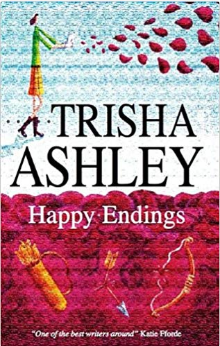 Reader requirements are important too, of course. In a world where there's hunger, poverty and cruelty, many people employ fiction as an escape mechanism. For a few short hours, they can forget the awfulness portrayed on the nightly news as they lose themselves in a happier world between the covers of a book. Other readers may disagree. After all, real life isn't all roses and honey. Not everyone wants to read books that deliver a moral message, preferring to escape the pervading political correctness of our times with a book that doesn't attempt to sugar-coat life. Novels that reflect the myriad problems affecting our world can reach out to readers more authentically, because they enable them to identify more strongly with the plot-line. An unhappy ending also avoids clichés. We're almost conditioned to expect a neat, happy wrap-up at the conclusion of a novel, so when the author delivers something quite different, it can come as a refreshing change. Unexpected endings can jar the reader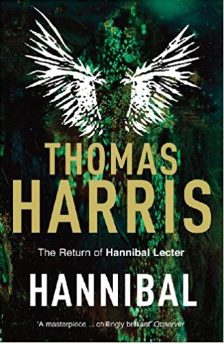 Not always, though. Sometimes endings can jar the reader. I suspect this is often because they don't deliver what my friend requires - the triumph of good over bad. Perhaps that's why the end of Gillian Flynn's novel 'Gone Girl' (review here) has attracted so much criticism, with many readers hating it. Without wishing to give spoilers, Flynn doesn't provide a neat wrap-up in which the novel's resident psychopath meets a well-deserved comeuppance. Her finale is refreshing for that very reason, although I confess I also found it somewhat unsatisfying. Let's look at another example. Take how Thomas Harris concludes 'Hannibal'. OK, so the final chapters of this book have been derided as being totally unrealistic - 'that would NEVER happen!' is a typical response - but like with 'Gone Girl', I suspect some of this is because the ending offends many people's sense of morality. Where is Lecter's punishment for his terrible crimes? What's more, not only does evil come out on top, the closing events portray the corruption of Clarice Starling, a former federal agent, someone supposed to defend right versus wrong. Lecter perverts whatever's decent in Clarice by leading her to share his cannibalistic depravity as well as making her his lover. End result - evil triumphs over good. Unacceptable to many people, I suspect; hence the criticism. The fun that a good villain provides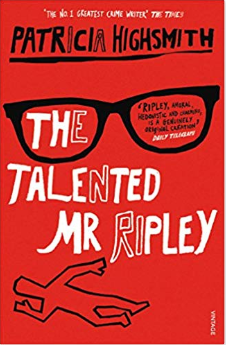 For some readers, it's easy to set aside questions of good versus evil, of course. Many people adore a villain. There's something about the bad guys and girls of fiction that's oddly compelling. Take the popularity of Patricia Highsmith's series of Ripley novels. Tom Ripley is a psychopath who kills as and when it suits him, but he's also a charming and engaging individual. Polite, cultured, moving in a glamorous world of travel and luxury, he delights the reader with his total lack of a moral compass. When he fails to get his due desserts at the end of Highsmith's novels, we don't mind, because Ripley has entertained us so much along the way. Perhaps that's why we also love Hannibal Lecter. He's a depraved cannibal, sure, but he's also intelligent, witty and cultured, a dichotomy that intrigues us and draws us in, as we endeavour to understand what drives such a man. We're revolted by the idea of him eating Krendler's brain, but also filled with admiration for his brilliant mind and ruthless cunning. Ah, the contradictions of human nature! Aren't they fascinating? Do you prefer a happy ending?Let's hear from you! What do you require in order to be satisfied with a novel's ending? If you're a romance reader, do you need A and B to live happily ever after, or are lots of tears and a death or two OK? If you're into dystopia, do you believe a happy ending runs contrary to what the genre should deliver?
Are there any novels that ended in a totally different way to what you'd expected, and if so, were you pleased or disgruntled? Do you read to escape real life, or are you somebody who prefers novels to deliver a social commentary in line with the world's issues? Leave a reply and let me know!
0 Comments
Leave a Reply. |
Categories
All
Subscribe to my blog!
Via Goodreads
|
Join my Special Readers' group and receive a free copy of 'Blackwater Lake'!
|
Privacy policy Website terms and conditions of use
Copyright Maggie James 2018 - current date. All rights reserved.
Copyright Maggie James 2018 - current date. All rights reserved.
 RSS Feed
RSS Feed
